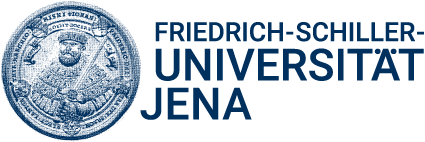Publications with the contribution of LGSA PhD candidates
The goal of a PhD thesis program is to publish at least one first-author paper in an international peer-reviewed journal. We are very happy that our young researchers highly contribute to the publication record of the participating institutions.
2009
- Acetylation of non-histone proteins modulates cellular signalling at multiple levels.
Spange S, Wagner T, Heinzel T, Krämer OH
Int J Biochem Cell Biol 2009, 41(1), 185-98 - Repair of sparfloxacin-induced photochemical DNA damage in vivo.
Struwe M, Greulich KO, Perentes E, Martus HJ, Suter W, Plappert-Helbig U
J Invest Dermatol 2009, 129(3), 699-704 - Effects of dietary restriction on mortality and age-related phenotypes in the short-lived fish Nothobranchius furzeri.
Terzibasi E, Lefrançois C, Domenici P, Hartmann N, Graf M, Cellerino A
Aging Cell 2009, 8(2), 88-99 - AGC kinases regulate phosphorylation and activation of eukaryotic translation initiation factor 4B.
van Gorp AGM, van der Vos KE, Brenkman AB, Bremer A, van den Broek N, Zwartkruis F, Hershey JW, Burgering BMT, Calkhoven CF, Coffer PJ
Oncogene 2009, 28(1), 95-106 - Fluorescence correlation spectroscopy to assess the mobility of nuclear proteins.
Weidtkamp-Peters S, Weisshart K, Schmiedeberg L, Hemmerich P
Methods Mol Biol 2009, 464, 321-41 - DNA methylation analysis of chromosome 21 gene promoters at single base pair and single allele resolution.
Zhang Y, Rohde C, Tierling S, Jurkowski TP, Bock C, Santacruz D, Ragozin S, Reinhardt R, Groth M, Walter J, Jeltsch A
PLoS Genet 2009, 5(3), e1000438
2008
- Comparative analysis of sequence features involved in the recognition of tandem splice sites.
Bortfeldt R, Schindler S, Szafranski K, Schuster S, Holste D
BMC Genomics 2008, 9, 202 - A dose-rate effect in single-particle electron microscopy.
Chen JZ, Sachse C, Xu C, Mielke T, Spahn CMT, Grigorieff N
J Struct Biol 2008, 161(1), 92-100 - KIF5A-mediated transport in the presence of Eg5.
Dreblow K, Böhm KJ
Eur J Cell Biol Suppl 2008, 87(Suppl 1), S3-13 - Oligomeric and fibrillar species of beta-amyloid (A beta 42) both impair mitochondrial function in P301L tau transgenic mice.
Eckert A, Hauptmann S, Scherping I, Meinhardt J, Rhein V, Dröse S, Brandt U, Fändrich M, Müller WE, Götz J
J Mol Med 2008, 86(11), 1255-67











